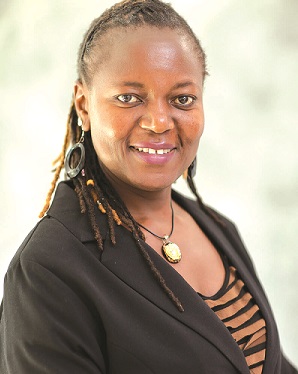
The Sunday Mail

Miriam Tose Majome
THE Voluntary Media Council of Zimbabwe (VMCZ) recently unveiled its media complaints report for the year 2022.
VMCZ is an independent voluntary association of journalists geared towards promoting professional media ethics and facilitate self-regulation of the industry. It was established in 2007 by journalists and other civil society stakeholders, and is distinct from the Zimbabwe Media Commission (ZMC), which is a statutory regulator.
VMCZ members voluntarily join and subscribe to the principles of media freedom, accountability, independence of journalists and ethical journalism.
The VMCZ seeks to promote a strong and ethical media that contributes to a more democratic and just society.
It invited the public to contact it for redress when aggrieved by the conduct of the media. The ZMC welcomes and supports self-regulatory media associations like the VMCZ because they help to preserve and improve media ethics and professional journalistic conduct.
The association has a media complaints committee that receives and handles complaints from the public against the media. Presently, some members of the media fraternity are pushing for legislative amendments to provide for a co-regulation framework for the sector.
Under a co-regulation framework, the media commission would share regulatory authority with a council of media practitioners. While the principles of co-regulation have not yet been approved, media practitioners can and are encouraged to regulate themselves, as they do. Chairperson of the VMCZ media complaints committee Retired Justice George Smith said the system of self-regulation works perfectly.
The VMCZ is a good example of self-regulation. In 2022, the council received and handled 30 complaints against media establishments and individual journalists. This was a 100 percent increase from the 15 it received the previous year. It satisfactorily resolved 29, most of which were addressed within reasonable timelines.
Most of the complaints were received from men. However, there was concern over under-reporting of grievances by women. Women tend to be portrayed negatively in the media, which logically should result in more complaints from them.
Many stories about women tend to be of the scandal and sensational type that feed on negative social stereotypes about women. The complaints received do not reflect that, and this, in itself, is a reflection of other deep issues underlying the low participation by women in social issues. Increased participation by men is attributed to greater awareness by men of their rights and their willingness to assert their media rights and other rights through the media.
A similar situation is mirrored regarding complaints and participation from Harare in comparison with other geographical locations. Twenty-one of the 30 complaints were received from Harare, four from Bulawayo and one each from Binga, Uzumba-Maramba-Pfungwe and Mutare.
The low level of participation from other geographical areas also reflects deeper issues related to the marginalisation of other regions and low access and availability of media products.
The ZMC is concerned that both print and electronic media products tend to be concentrated in urban areas. The majority of the population, who live outside urban areas, have very limited opportunities to enjoy their media and access to information rights.
The VMCZ, which is represented in all the country’s provinces, is commended for its nationwide presence and geographic spread. Most of the complaints were against newspapers and related to accuracy and fairness, plagiarism, violation of privacy, failure to give involved parties the right of reply, protection of sources, hatred and violence. There were also some complaints regarding the photographing and interviewing of children without following ethical processes. The ZMC is empowered, in terms of the Zimbabwe Media Commission Act, to receive and handle media complaints from the public. Proposed amendments to the Act, which are already being considered, will provide for a more comprehensive complaints handling procedure, giving the commission more legislatively enforceable powers of resolving complaints.
Miriam Tose Majome is a commissioner with the Zimbabwe Media Commission.



